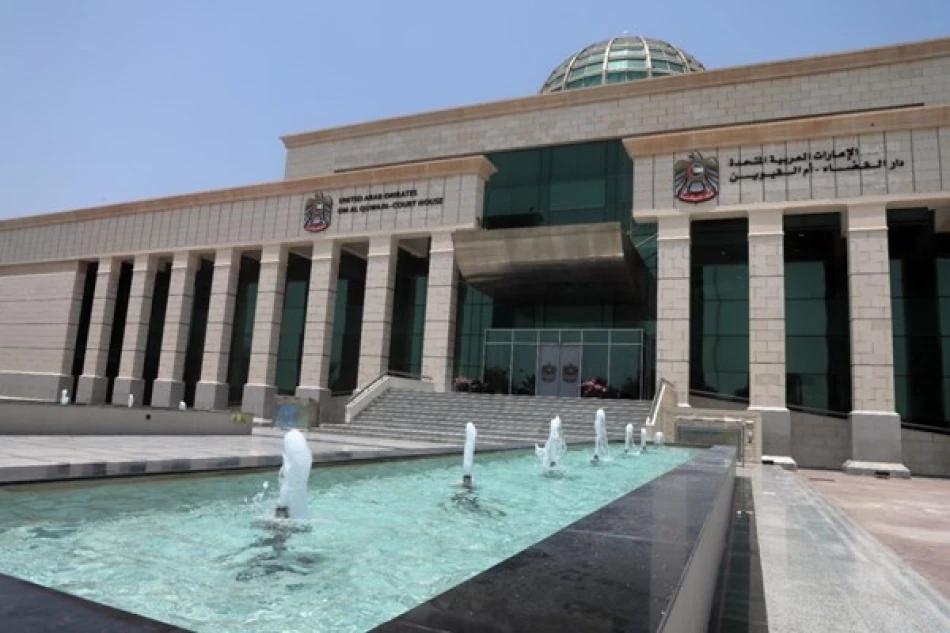
Umm Al Quwain Court Launches 'Your Joy, Our Joy; Your Kids, Our Kids' Initiative
UAE Court Breaks New Ground with Personal Graduation Visits to Minor Students
The Umm Al Quwain Federal Primary Court has launched an unprecedented community outreach initiative, personally visiting the homes of minor students to celebrate their high school graduations. This groundbreaking program transforms the traditional relationship between judicial institutions and vulnerable youth, marking a significant shift in how courts engage with communities beyond their legal mandate.
Beyond the Courtroom: A New Model of Judicial Community Engagement
The initiative, titled "Your Joy is Our Joy, Your Children are Our Children," represents part of the UAE's broader "Year of the Community" campaign. Court officials are conducting home visits to congratulate graduating minors, presenting them with gifts and certificates of appreciation in what the court describes as creating "humanitarian atmospheres" that recognize student achievements.
This approach signals a fundamental reimagining of how judicial institutions can serve society. Rather than limiting their role to legal proceedings, the Umm Al Quwain court is positioning itself as an active community partner, particularly for vulnerable populations like minors who may have had previous interactions with the justice system.
Strategic Implications for UAE's Social Cohesion Goals
Addressing Youth Rehabilitation Through Recognition
The timing and target demographic of this initiative suggests a sophisticated understanding of youth psychology and rehabilitation. By celebrating educational achievements of minors—many of whom likely had previous court involvement—the program creates positive associations with institutional authority figures. This represents a stark departure from punitive approaches traditionally associated with juvenile justice systems globally.
Setting Regional Precedents
While other Gulf states have invested heavily in youth programs and educational initiatives, few judicial systems have embraced such direct community engagement. Singapore's community courts and some US problem-solving courts offer models of expanded judicial roles, but the UAE's approach of proactive celebration visits appears unique in scope and personal touch.
Broader Context: UAE's Community-Centric Governance Evolution
This initiative aligns with the UAE's ongoing transformation from a business-focused hub to a comprehensive society prioritizing citizen welfare and social bonds. The "Year of the Community" framework, under which this program operates, reflects leadership recognition that sustainable development requires strong social fabric alongside economic growth.
The court's emphasis on providing psychological and social support acknowledges research showing that positive institutional relationships during adolescence significantly impact long-term civic engagement and law-abiding behavior. By investing in these relationships proactively, the UAE may be pioneering a preventive approach to juvenile justice that other nations will likely study and potentially replicate.
Measuring Success: What This Means for Future Policy
The program's reception—with students and families expressing gratitude for what they describe as messages of "love and care"—suggests strong community approval. However, the real test will be longitudinal outcomes: whether participants show improved educational persistence, reduced recidivism rates, and stronger community ties compared to previous cohorts.
If successful, this model could expand beyond Umm Al Quwain to other emirates and potentially influence judicial community engagement strategies across the Gulf region. The initiative represents a calculated bet that investing in positive youth relationships today will yield significant social returns in the UAE's next generation of citizens.
Most Viewed News

 Layla Al Mansoori
Layla Al Mansoori






